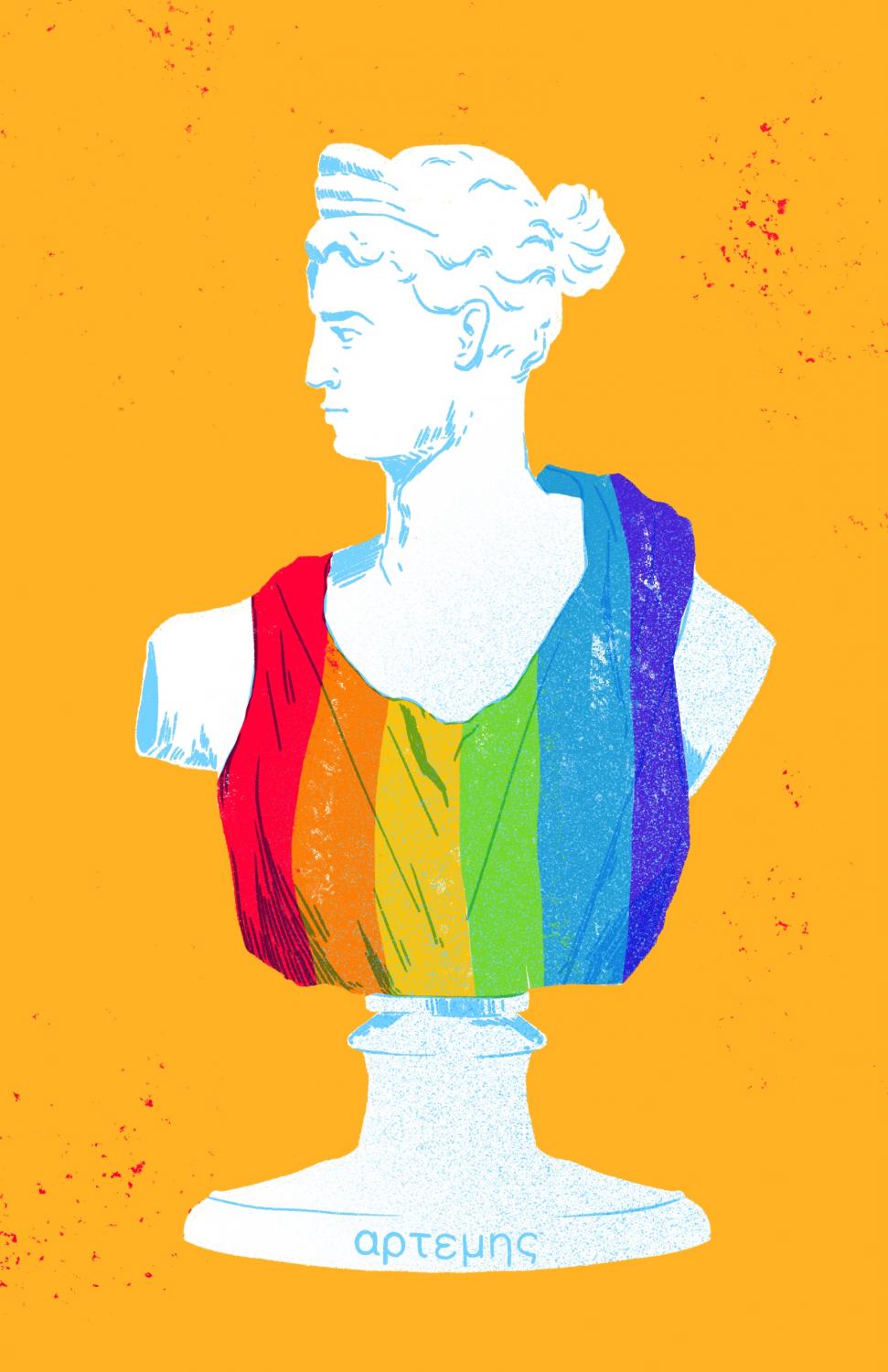OPINION: Bringing queer literature ‘out of the closet’
May 9, 2019

Did you know Zeus was bisexual? Being queer was a fairly common thing in ancient Greece, but it is often not talked about, especially in schools.
There were many queer gods and goddesses, such as Achilles and Patroclus; Callisto and Artemis; and Hermaphroditus, who was one of the first intersex people in mythology.
Queer characters are more common in mythology than we realize, including Hercules, who had a male lover named Hylas. This was omitted from Disney’s adaptation. This has happened in countless retellings of myths; queer relationships get left out, brushed over and not talked about at all.
When queer history is not taught in schools or queer stories are censored, it sends a message that queer people aren’t worthy enough to be represented. LGBTQ people deserve not only representation but equality.
Queer people and relationships aren’t new; they’ve been around forever and so have their stories; people have just attempted to hide them. While in some places an understanding of the queer community may be progressing, in other surroundings, these stories are silenced, therefore silencing the queer community.
The lack of awareness around these myths speaks not only to the suppression of the queer community but the larger issue of censorship. Many books get banned from schools due to the things they contain, such as LGBTQ characters, references to mental illness, violence, religious viewpoints, racism or even sex education. Some may see these as inappropriate topics to discuss in schools, but these are all topics that affect our youth every day.
However, many schools and libraries across the country celebrate Banned Books Week annually in September. According to the American Library Association’s website, Banned Books Week is designed to celebrate the freedom to read:
“It spotlights current and historical attempts to censor books in libraries and schools and … brings together the entire book community … in shared support of the freedom to seek and express ideas, even those some consider unorthodox or unpopular.”
Instead of silencing a story because it could cause discomfort, we need to share these stories. Too often only one side of a story is told, and too often marginalized voices are silenced.
It’s important to research and take the time to not only read, but share these stories that so often get brushed aside. Queer stories are valid stories, just as queer history is valid history. It’s important not to lose traditional stories from diverse communities.
It’s time to bring queer stories out of the closet—literally—and back into the forefront of literature and our everyday lives.







